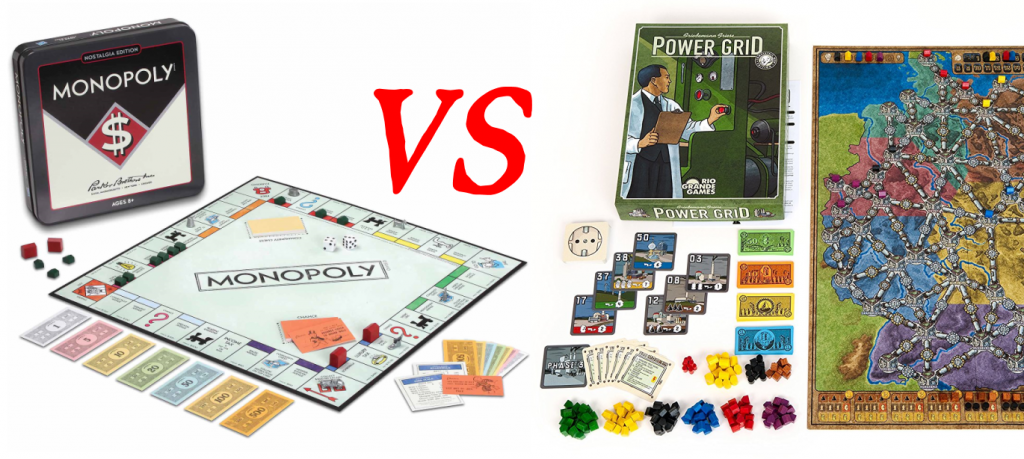The “Do Nots” of Playtesting
By David Stockton
Hello everyone! Today I’d like to talk about, in my opinion, the unspoken “Do Nots” of playtesting and what I am looking for as feedback as a designer. Sam talked about feedback more specifically a while back and what to do with it as a designer, but I’d like to talk about what feedback is helpful. This topic is near and dear to my heart because before I had more serious roles in design, I was a playtest guinea pig and good feedback can be hard to give at times and some feedback is unhelpful or not appropriate for the stage the game is at. I’m going to assume everyone out there has either participated in playtesting, whether it’s the guinea pig or the designer, and that we may know our way around a prototype game or two.
Before I delve too deep, I’m going to clarify two terms: Alpha and Beta. These terms are not used in the board game industry as much per say but the alternative is explicitly saying “an early development prototype with these characteristics” and that’s a bit of a mouthful. Alpha is going to be referring to games with rudimentary, home-made or borrowed game pieces or boards, rules scribbled on a note pad in little to no organization and littered with funky technicalities, game breaking scenarios, and most likely a severe lack of art. There is nothing wrong with these alpha games. Everyone has made one. They are usually pretty ugly, and the designer usually says, “So I was playing [insert game] and I wanted to make something similar, so I made this last night at 3 AM.”
Beta games are a huge step up and will have organized rule systems, more cohesive game components (made with a little more tender love and care), more visual clarity or visual aspects being present, and a few of the kinks worked out as far as how the game functions. These beta games are going to be easier to understand and more user friendly but by no means a finished product. With that out of the way let’s talk about some etiquette, shall we?
We need Play testers, not Editors…
In my experience, one of the things that can cause the biggest frustration for designers or the poor guy running prototype demos is being bombarded with feedback about editing. I cannot express through writing how many times after a playtest when asking for feedback I will receive responses like, “This word is spelled incorrectly,” “The apostrophe is in the wrong place,” “Grammatically speaking this sentence structure doesn’t work.” If you are prototyping a game that is in alpha stages and miles away from a printing prototype it is assumed there are going to be errors with spelling, grammar, and syntax. The designer is also abundantly aware of said issues. When games like this are play tested the big thing they want to know is quite simple: is it fun, does it have any promise, is the spirit of the game worthy of pursuing?
Now beta games may be different in how far the designer has gone to do preliminary editing, but I’d say that there is a right and wrong way to point out mistakes, and there are some mistakes probably not worth mentioning at the table when they ask for feedback. Things that would be worth mentioning in my opinion are as follows:
1) Rules and mechanics that are convoluted beyond human comprehension, i.e., the card text simply doesn’t make sense and requires several explanations.
2) Inconsistent “keyword” usage – the difference between using the word pool and supply that can cause confusion.
3) Illegible words or text that simply cannot be read.
As far as editing type of feedback any deeper than this may cause a snowball effect of everyone at the table. One person mentions a capitalization error and says so aloud, another player than mentions a punctuation error on a card, pretty soon the table is in a frenzy to find every error in the rules, cards, or anything else that has text and by the end of it your game will resemble more of an 8th grader’s botched English essay than a game. I’d say the only exception would be if the designer specifically asked for feedback on how things were written or something of the like.
Feedback ≠ Criticism
The designer is not a punching bag and feedback doesn’t have to come in the form of sharp tongues and shining daggers. I have sat at tables playing with others having a grand old time genuinely enjoying the prototype and thinking “Now this is what a game feels like. Finally!” Game ends and I ask all the smiling faces for feedback and all of the sudden a relentless flurry of criticism and “you need to do this” hits me. Now this was pretty jarring when I first started to demo and bring something for others to playtest, but I soon realized I was prone to this too. Criticism by definition is entirely negative, feedback should be more of a mixed bag or with a helpful spin. Positive feedback is very important, it tells the designer that there is something good or enjoyable in the bare bones pile of index cards, tokens, and miscellany. Without positive feedback it can be hard to tell if the prototype is even worth it or if it has any redeemable features or moments.
Now criticism is needed but it shouldn’t be DeFacto, again the snowball effect can be especially bad with negative feedback, and it can be discouraging to only hear negatives all day and the only positive to be “it was alright.” That being said, not all games are created equal, and everyone has a unique taste and a long list of likes and dislikes, so if you do end up playtesting a game that you find very little redeemable using a question to answer a question can be used.
For example, I may be playtesting a pattern making game and I may not find it very interesting or very good, a good helpful response would be “have you played Azul or Tiny Towns?” You’re giving directions for that designer to look at something that you like or works and are saying in essence “these are things I like. Maybe you should look at them for inspiration.” I think it is also reasonable to mention that it may not be a game you would usually play or to step away from your personal likes and dislikes and talk about a specific mechanic, something interesting about the game.
In the end, I think the hardest part is learning how to give feedback that isn’t too harsh but honest. It’s hard but important for designers to feel motivated to keep trying; honesty is the best policy, but a little bit of kindness goes a long way.
Your game is just X but bad…
This is one that really boils my blood for several reasons, but I’ll be brief. For starters, every game ever can be compared to another game in this manner and the logic behind this is missing the mark by a sizeable margin. I can make every euro player combust with rage by simply saying Power Grid is just an overly complex and worse Monopoly. There I said it, the goal is to build houses on a board and have a lot of paper money at the end and take turns bidding on stuff. Simply put games can be like other games and that is good as long as it’s not blatant copyright infringement or a shameless cash grab.

Originality is subjective and complete originality is seriously few and far between and will usually be uncomfortable or unfamiliar to the audience. So please stop referring to games as “this is just a different [insert flagship game here].” It would be like referring to me as a less good Sam (my older brother). We are related yes; we share some commonalty sure. But in the end, I’m Dave and I’d prefer to keep my sense of self intact. Referring to someone’s game in this way can be redundant and unhelpful. The designer probably played the game you are comparing it to and liked it so much they wanted to do something similar. Alpha games can be very bare when it comes to how they play so they may play a lot like another game, but you have to keep in mind that it’s a start and that overtime and with enough work it will develop into something different.
Nobody owns the idea of putting pictures on a card and giving it rules or rolling dice or moving wooden figures on a board. For the designers out there, inspiration from other games is fine as long as you make it yours and show people how much variety can be in a genre of a board game.
Conclusion
I could rant for years it seems on negative experiences, but I should take my own advice and maybe look at the silver lining and give some positive feedback.
Games are wonderful and can make so many fun moments, bring people together, help distract us from some of the doom and gloom of daily life. When you play a board game it’s more than winning and losing or the intricacies of a mechanic, it’s about the moments. Playtesting should be fun, it’s different than just playing a game and it can be quite a bit of work, but I think it’s easy to lose sight of the point of playtesting. So, take a moment the next time you sit down at a prototype and think about what not to do and don’t sweat the rest. Be nice, helpful, embrace some of the jank and the missing rules, have a laugh, and maybe you might see that game in a store near you.
Thanks for reading everyone. If you have any feedback about ideas in this article, feel free to comment below. I’d love to see how other people see this topic.
